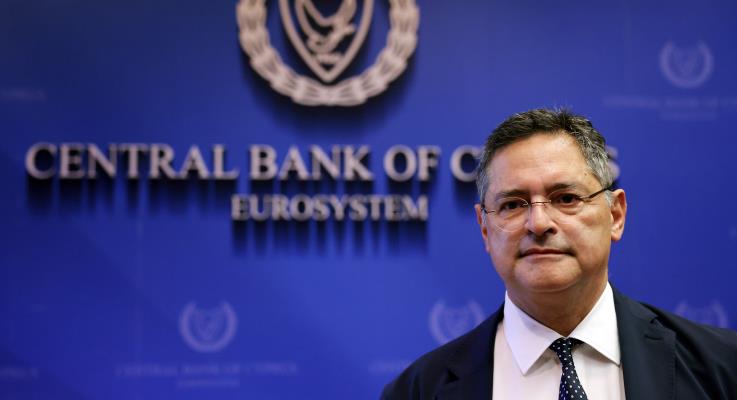Central Bank of Cyprus (CBC) govennor Christodoulos Patsalides on Thursday addressed the Economist annual summit, highlighting the European banking sector’s resilience, while also addressing the challenges and risks facing the region’s economy.
Patsalides opened by saying that the European Central Bank (ECB) had made significant progress in its disinflationary efforts, with inflation falling to 2.0 per cent in October.
“The Governing Council of the ECB, at its meeting in October, advanced its policy easing as our assessment of the latest data confirmed significant progress in the disinflationary process,” he said.
He pointed out that the future pace of interest rate cuts will depend on continued data assessments.
“The pace and magnitude of further rate cuts remain a subject of ongoing assessment,” he said.
Moreover, he explained that while there is cautious optimism for future monetary policy adjustments “inflationary pressures, particularly those stemming from potential supply shocks, still pose risks”.
The governor also discussed the broader economic context, stressing that while growth in the euro-area has been slow, the ECB must approach rate cuts carefully.
He mentioned that “there is still considerable uncertainty with regard to energy prices, and services inflation continues to be sticky at 4 per cent”.
“If trade restrictions materialise, the outcome may be inflationary, recessionary, or worse, stagflationary,” he added.
However, the outlook was not entirely bleak, as Patsalides suggested that a more gradual and steady approach to rate cuts might be possible if December’s data supports the baseline scenario.
He stated that “if incoming data and new projections in December confirm our baseline scenario, there will be room to continue lowering rates at a steady pace and magnitude”.
On the state of the European banking sector, Patsalides highlighted several positive indicators, noting, that “the liquidity ratio reached 163.2 per cent, the CET1 ratio increased to 17.5 per cent, and the Non-Performing Loans ratio remained relatively steady at 1.9 per cent”.
Patsalides credited the Single Supervisory Mechanism (SSM) with delivering exceptional outcomes in supporting the resilience of European banks.
Despite these strengths, he cautioned that the banking sector alone cannot drive the necessary economic transformation.
“The pursuit of a stronger and more competitive European economy requires the establishment of a truly integrated capital markets union,” Patsalides said.
The CBC governor also spoke about the urgent need for a common deposit guarantee scheme, emphasising that Europe is falling behind in productivity compared to the United States.
“The alarming reality is that Europe is falling behind with much lower productivity levels compared to the United States,” he said.
To close the productivity gap, the CBC governor called for bold structural reforms, particularly in capital markets.
He pointed to the Draghi Report as a key document offering actionable solutions. “The Draghi Report provides the right recipes to achieve these goals. It also sheds light on key weaknesses in the European economy and offers actionable guidance,” he said.
Patsalides also expressed concern over the lack of a robust European venture capital market, citing the ECB’s Financial Stability Review.
“The US venture capital market is five times larger than that of the euro area,” he mentioned, urging for stronger support for start-ups and scale-ups in Europe.
“Encouraging IPOs and equity investments for start-ups and scale-ups can be achieved by reducing regulatory barriers, especially in advanced digital technologies,” he added.
In terms of regulatory improvements, he proposed a unified approach, saying that “having a single supervisor for EU capital markets would ensure consistent risk treatment, reduce fragmentation, and boost confidence in EU capital markets—key steps toward realising a unified capital market”.
Patsalides also reiterated the importance of stability in the banking sector.
“Overall, as we navigate the broader euro-area monetary policy landscape, the resilience of the European banking sector remains a cornerstone for ensuring stability in the face of economic uncertainties,” the CBC governor concluded.







Click here to change your cookie preferences